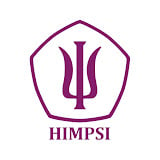INTOLERANCE OF UNCERTAINTY PREDICTS HAPPINESS OF YOUNG ADULTS IN POST COVID-19 PANDEMIC
Abstract
There is evidence that intolerance of uncertainty (IU) is associated with difficulty experiencing positive emotions such as happiness. There is a scarcity of research examining the relations between IU and Happiness during and after the covid-19 pandemic. We examined the degree to which IU predicts Happiness of young adults. This research was conducted using data from 555 participants, age 18 to 35 (SD = 3.34, M = 22.96). Data collected using the online questionnaire used will be created using items derived from two measuring instruments or scales that have been adapted by translating the scale items from English into Indonesian. IU was measured using 12 items the Intolerance for Uncertainty Scale (2 dimensions) from Shihata, McEvoy, and Mullan (2018). The Oxford Happiness Questionnaire (5 dimensions, 29 items) was used to measure happiness. As predicted, IU corelates and predicted happiness. The correlation test between dimensions shows that overall happiness has significant positive correlation with both dimension of IU. On the other hand, the total IU score did not correlate significantly with the life satisfaction dimension of happiness.
Keywords
Full Text:
PDFReferences
Bera, L., Souchon, M., Ladsous, A., Colin, V., & Lopez-Castroman, J. (2022). Emotional and behavioral impact of the COVID-19 epidemic in adolescents. Current psychiatry reports, 24(1), 37-46.
Boswell, J. F., Thompson‐Hollands, J., Farchione, T. J., & Barlow, D. H. (2013). Intolerance of uncertainty: A common factor in the treatment of emotional disorders. Journal of clinical psychology, 69(6), 630-645.
Carleton, R. N. (2016). Fear of the unknown: One fear to rule them all? Journal of Anxiety Disorders, 41,5–21. doi:10.1016/j.janxdis.2016.03.011.
Carleton, R. N., Norton, M. A., & Asmundson, G. J. (2007). Fearing the unknown: a short version of the Intolerance of Uncertainty Scale. Journal of Anxiety Disorders, 21, 105-117. doi:10.1016/j.janxdis.2006.03.014
Clark L.A. & Watson, D. (1995). Constructing validity: basic issues in objective scale development. Psychol Assess, 7, 309319.
Cullen, W., Gulati, G., & Kelly, B. D. (2020). Mental health in the COVID-19 pandemic. QJM: Monthly Journal of the Association of Physicians, 113(5), 311–312. https://doi.org/10.1093/qjmed/hcaa110
Das, T., Azmi, S., & Mondal, P. J. (2022) Exploring the Impact of Intolerance of Uncertainty, Positive Negative Affect, and Anxiety on Psychological Adjustment and Life Satisfaction during Covid-19 Pandemic: A Study on Young Adults.
Detikcom, T. (2024, March 2). Hari ini 4 tahun lalu kasus pertama COVID-19, simak kilas baliknya. Detiknews. https://news.detik.com/berita/d-7221748/hari-ini-4-tahun-lalu-kasus-pertama-covid-19-simak-kilas-baliknya/3
Friska, M. (2023). Dampak Pandemi COVID-19 Terhadap Tenaga Kerja Di Indonesia. Media Edukasi Data Ilmiah dan Analisis (MEDIAN), 6(01), 35-52.
Hills, P., & Argyle, M. (2002). The Oxford Happiness Questionnaire: a compact scale for the measurement of psychological well‐being. Personality and Individual Differences, 33, 1073–1082.
Huang, L., Lei, W., Xu, F., Liu, H., & Yu, L. (2020). Emotional responses and coping strategies in nurses and nursing students during Covid-19 outbreak: A comparative study. PloS one, 15(8), e0237303.
Huang, Y., & Zhao, N. (2020). Generalize anxiety disorder, depressive symptoms and sleep quality during COVID-19 outbreak in China: a web based cross sectional survey. January.
Huang, Y., & Zhao, N. (2021). Mental health burden for the public affected by the COVID-19 outbreak in China: Who will be the high-risk group?. Psychology, health & medicine, 26(1), 23-34.
Imaroh, I., & Cashin, A. (2021). Fear of Covid-19 Related Factors among Females in Indonesia: An Online Survey.
Indonesia, B. P. S. (2021, December 27). Indeks Kebahagiaan 2021. Badan Pusat Statistik Indonesia. https://www.bps.go.id/id/publication/2021/12/27/ba1b0f03770569b5ac3ef58e/indeks-kebahagiaan-2021.html
Kandpal, A. (2022). Intolerance of uncertainty, self-efficacy, optimism & emotions in young adults. International Journal of Indian Psychȯlogy, 10(2).
Lades, L. K., Laffan, K., Daly, M., & Delaney, L. (2020). Daily emotional well‐being during the COVID‐19 pandemic. British journal of health psychology, 25(4), 902-911.
Li, S., Wang, Y., Xue, J., Zhao, N., & Zhu, T. (2020). The impact of COVID-19 epidemic declaration on psychological consequences: a study on active Weibo users. International journal of environmental research and public health, 17(6), 2032.
Liputan6.com. (2021, December 14). Kemnaker: 72.983 Pekerja Kena PHK Selama Pandemi Covid-19. liputan6.com. https://www.liputan6.com/bisnis/read/4750566/kemnaker-72983-pekerja-kena-phk-selama-pandemi-covid-19
Liputan6.com (2023, June 20). Update Covid-19 Selasa 20 Juni 2023: Positif 6.811.330, Sembuh 6.640.002, Meninggal 161.848. liputan6.com. https://www.liputan6.com/news/read/5324525/update-covid-19-selasa-20-juni-2023-positif-6811330-sembuh-6640002-meninggal-161848
Mayuzumi, Y. (2023). Survey of rural and urban happiness in Indonesia during the corona crisis. Asia-Pacific Journal of Regional Science, 7(1), 29-67.
Morriss, J., Goh, K., Hirsch, C. R., & Dodd, H. F. (2023). Intolerance of uncertainty heightens negative emotional states and dampens positive emotional states. Frontiers in Psychiatry, 14, 1147970.
Niu, X., & Snyder, H. R. (2023). The role of maladaptive emotion regulation in the bidirectional relation between sleep and depression in college students during the COVID-19 pandemic. Anxiety, Stress, & Coping, 36(1), 83-96.
Novita, S., & Andriani, D. (2022). Erika; Lipowski, M.; Lipowska, M. Anxiety towards COVID-19, Fear of Negative Appearance, Healthy Lifestyle, and Their Relationship with Well-Being during the Pandemic: A Cross-Cultural Study between Indonesia and Poland. Int. J. Environ. Res. Public Health, 19, 7525.
Rossouw, S., Greyling, T., & Adhikari, T. (2021). The evolution of happiness pre and peri-COVID-19: A Markov Switching Dynamic Regression Model. Plos one, 16(12), e0259579.
Shihata, S., McEvoy, P. M., & Mullan, B. A. (2018). A bifactor model of intolerance of uncertainty in undergraduate and clinical samples: Do we need to reconsider the two-factor model? Psychological Assessment, 30(7), 893–903. https://doi.org/10.1037/pas0000540
Tumanggor, R. D., Imaroh, I., & Cashin, A. (2021). Fear of Covid-19 related factors among females in Indonesia: an online survey. Jurnal Keperawatan Padjadjaran, 9(3), 216-223
Xiang, Y. T., Yang, Y., Li, W., Zhang, L., Zhang, Q., Cheung, T., & Ng, C. H. (2020). Timely mental health care for the 2019 novel coronavirus outbreak is urgently needed. The Lancet Psychiatry, (3), 228–229. https://doi. org/10.1016/S2215-0366(20)30046-8.
Yang, H., & Ma, J. (2020). How an epidemic outbreak impacts happiness: Factors that worsen (vs. protect) emotional well-being during the coronavirus pandemic. Psychiatry research, 289, 113045.
Yildiz, M., & Eldeleklioglu, J. (2021). The Relationship between Decision-Making and Intolerance to Uncertainty, Cognitive Flexibility and Happiness. Eurasian Journal of Educational Research, 91, 39-60.
Yudiarso, A., Nugroho, M. A., & Mustika, J. S. (2024). Analyzing Oxford Happiness Questionnaire Indonesian Version Using the Generalized Partial Credit Model. Psyche 165 Journal, 81-86.
DOI: http://dx.doi.org/10.22441/biopsikososial.v8i2.30945
Refbacks
- There are currently no refbacks.
Copyright (c) 2024 Biopsikososial: Jurnal Ilmiah Psikologi Fakultas Psikologi Universitas Mercubuana Jakarta
JBUMBand its articles is licensed under a Creative Commons Attribution-ShareAlike 4.0 International License.
Tim Editorial Office
JBUMB
Fakultas Psikologi, Universitas Mercu Buana
Jalan Meruya Selatan No. 1, Kembangan, Jakarta Barat, 11650, Indonesia
Phone: +6281318855243
Email: [email protected]
Website: https://publikasi.mercubuana.ac.id/index.php/biopsikososial/index

















